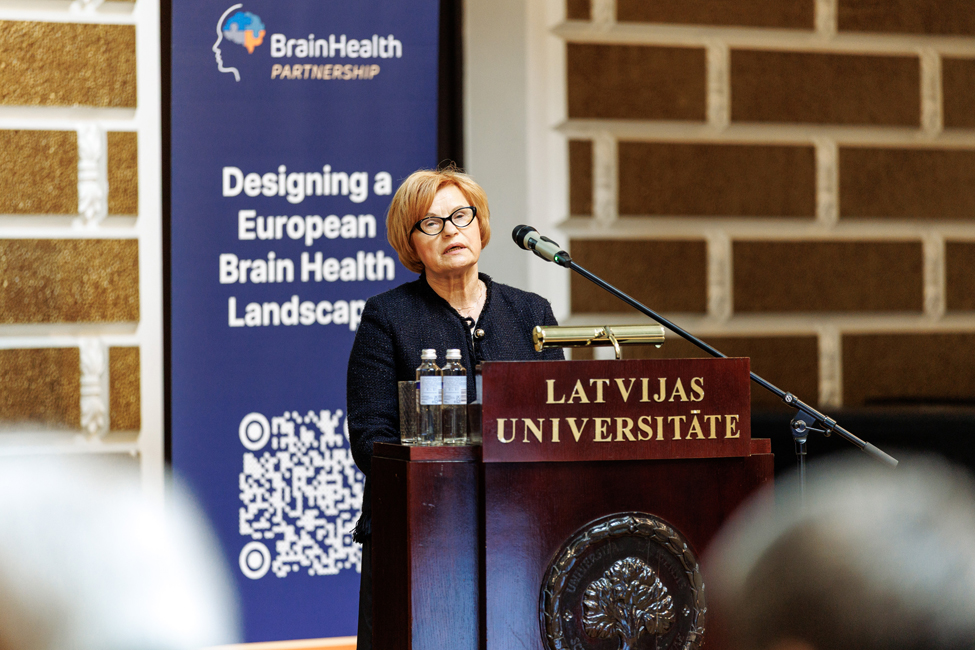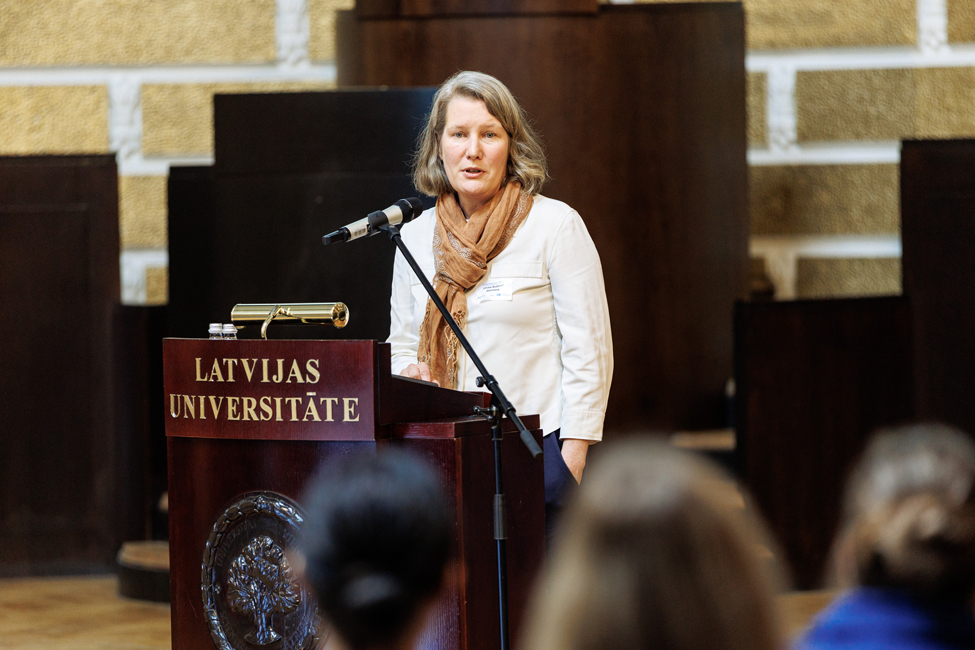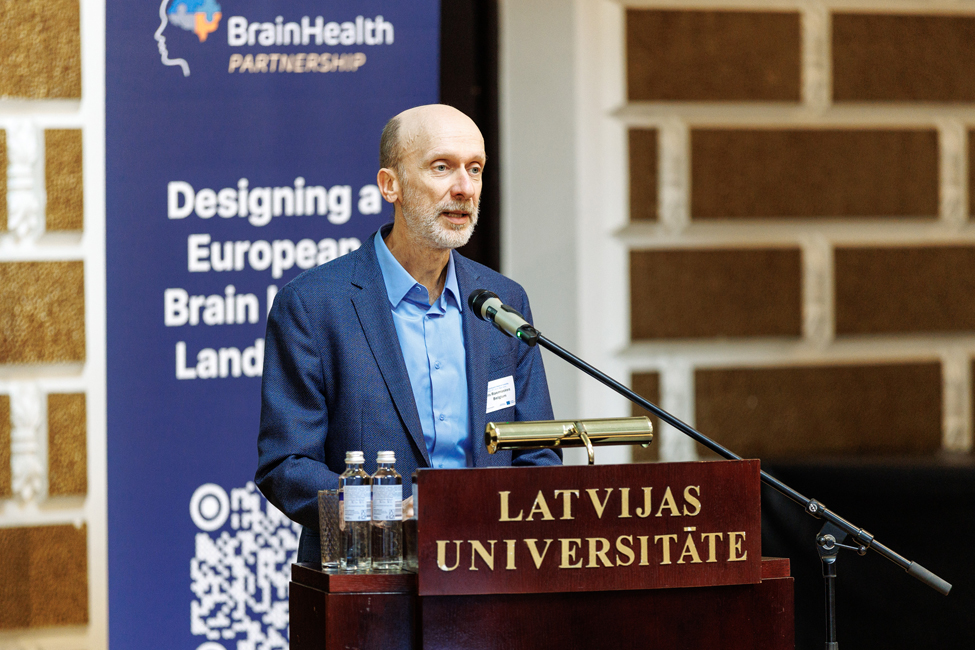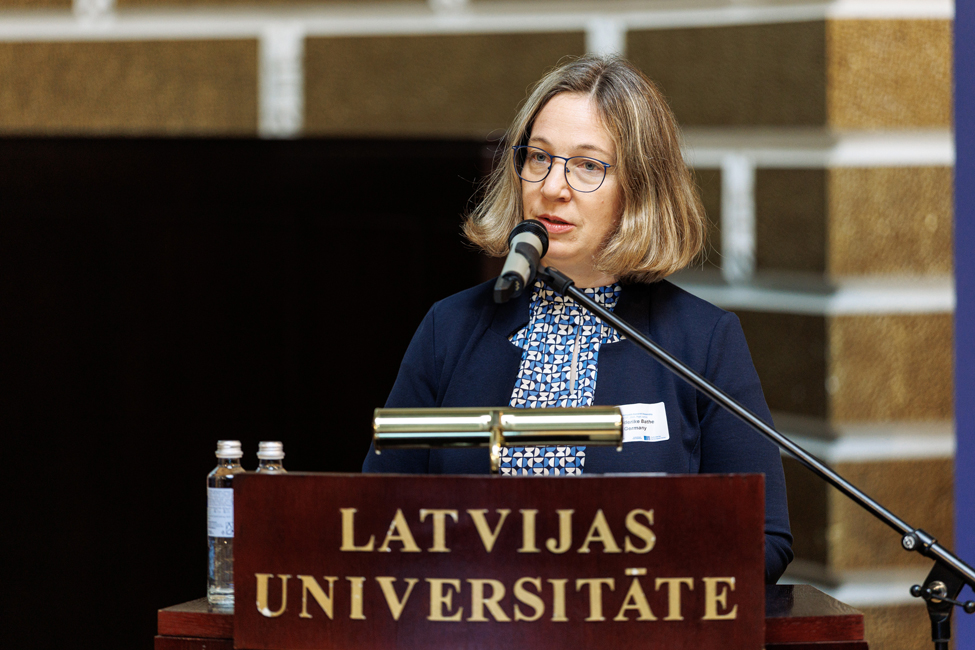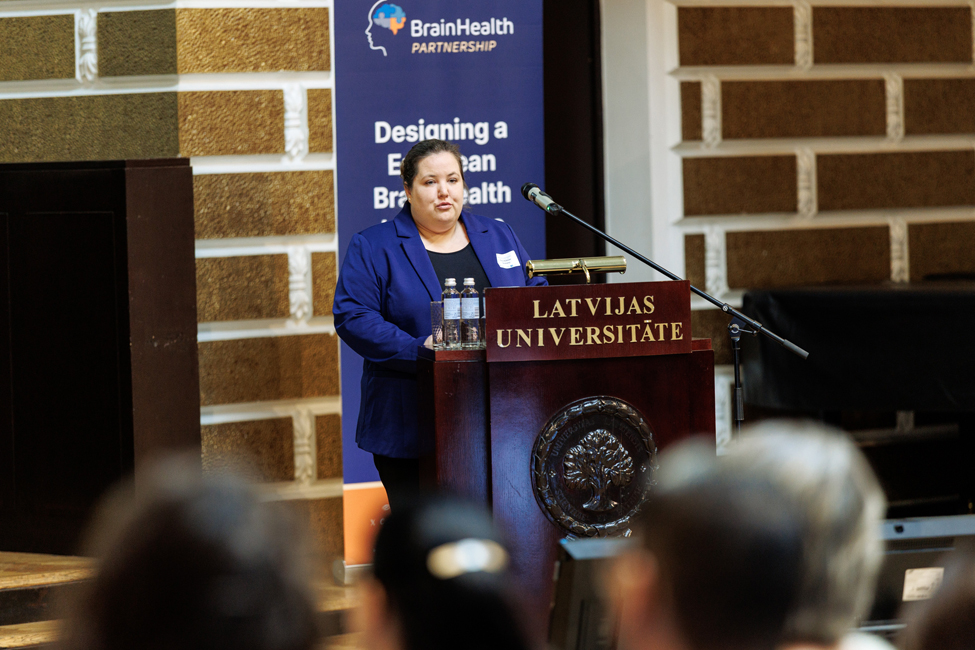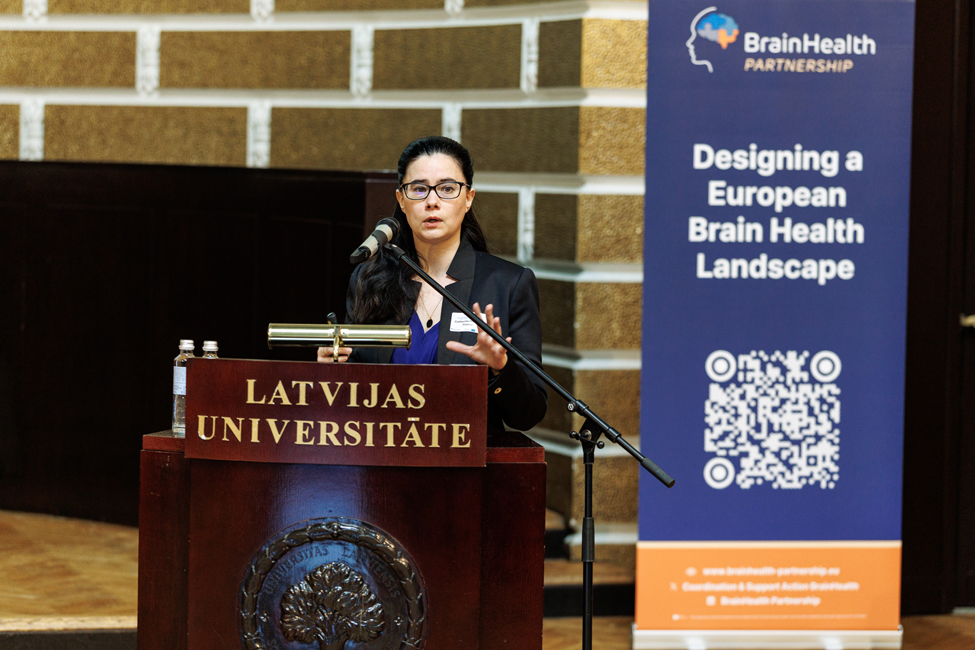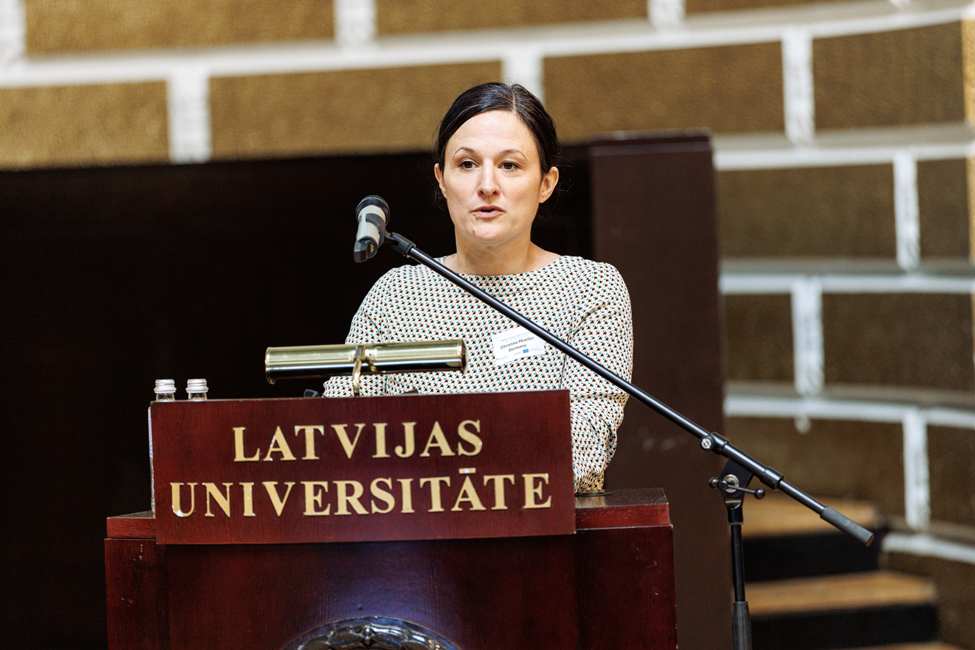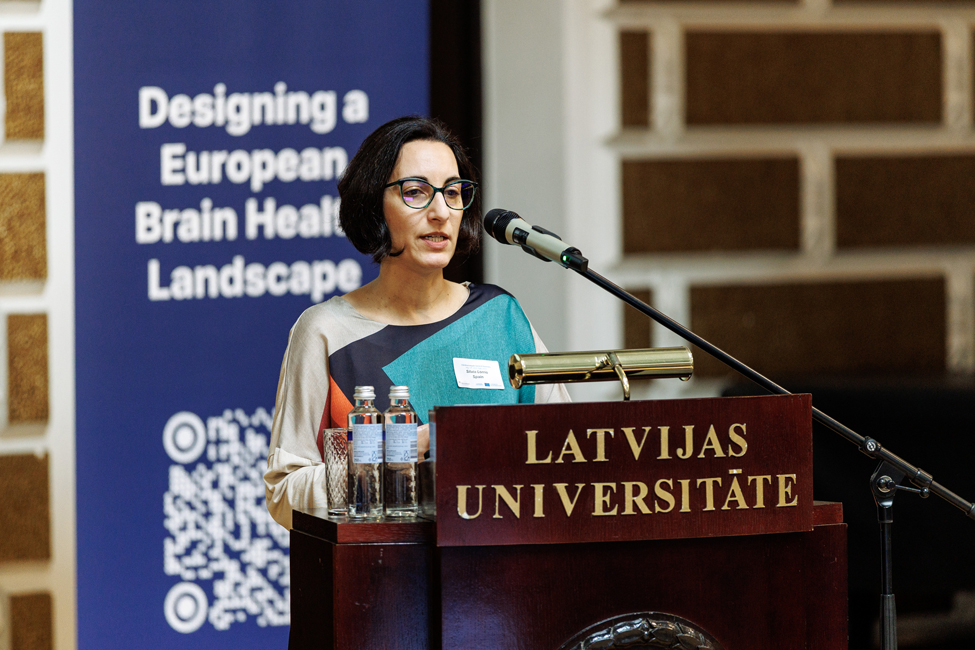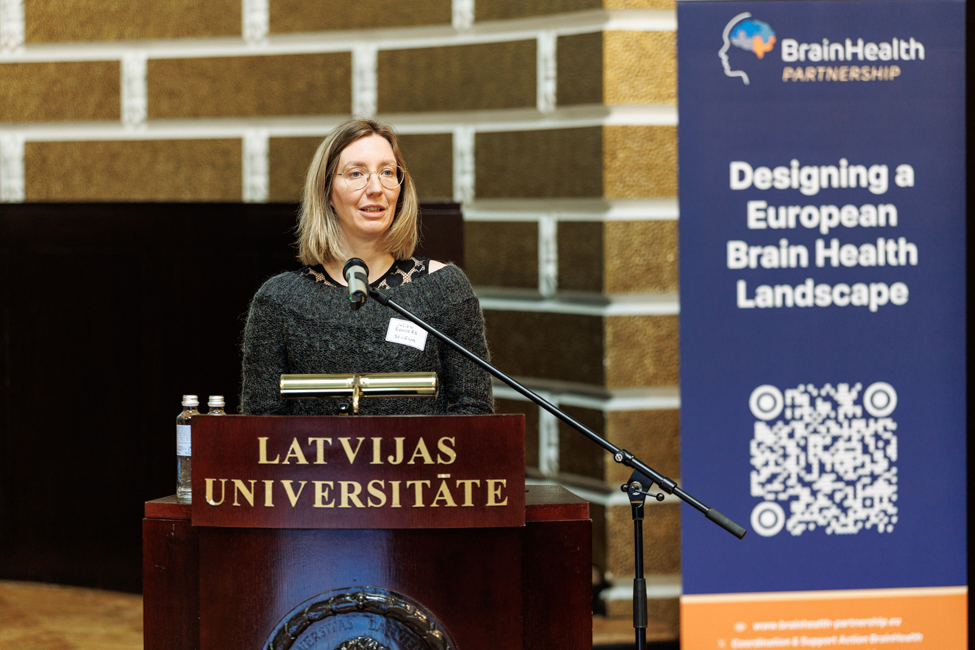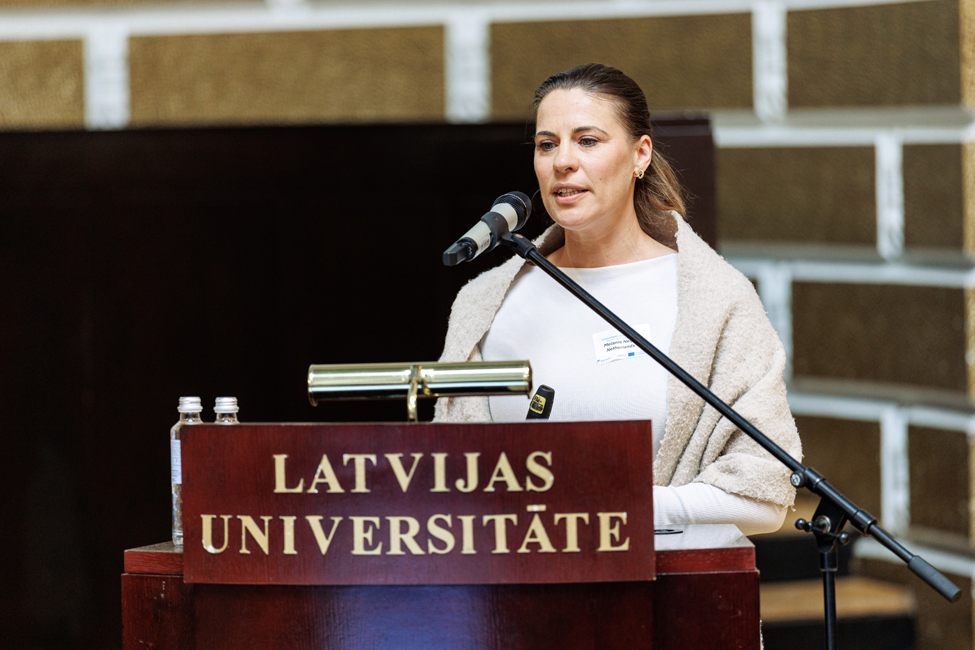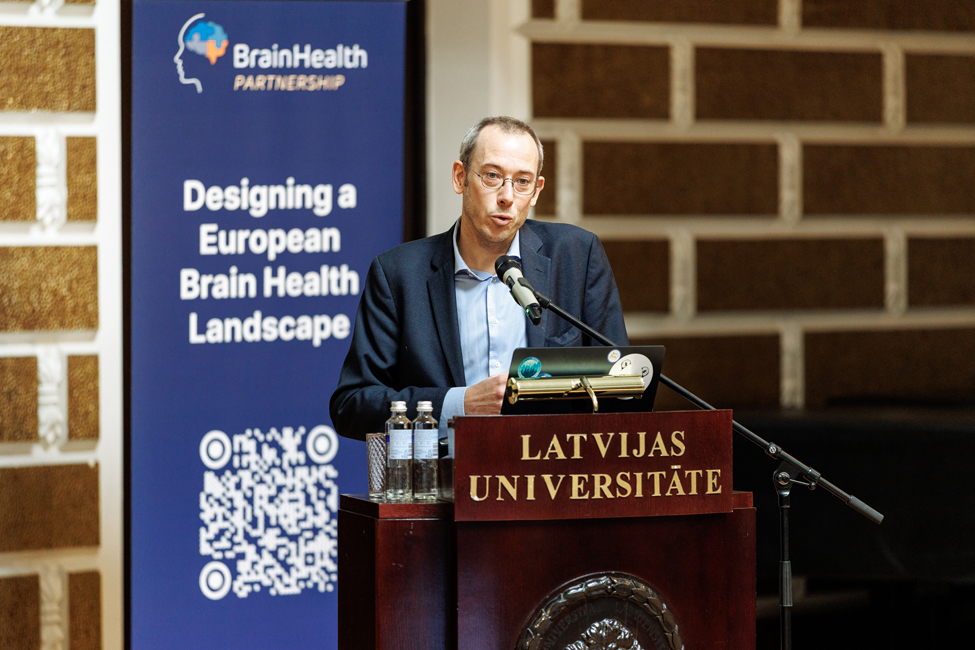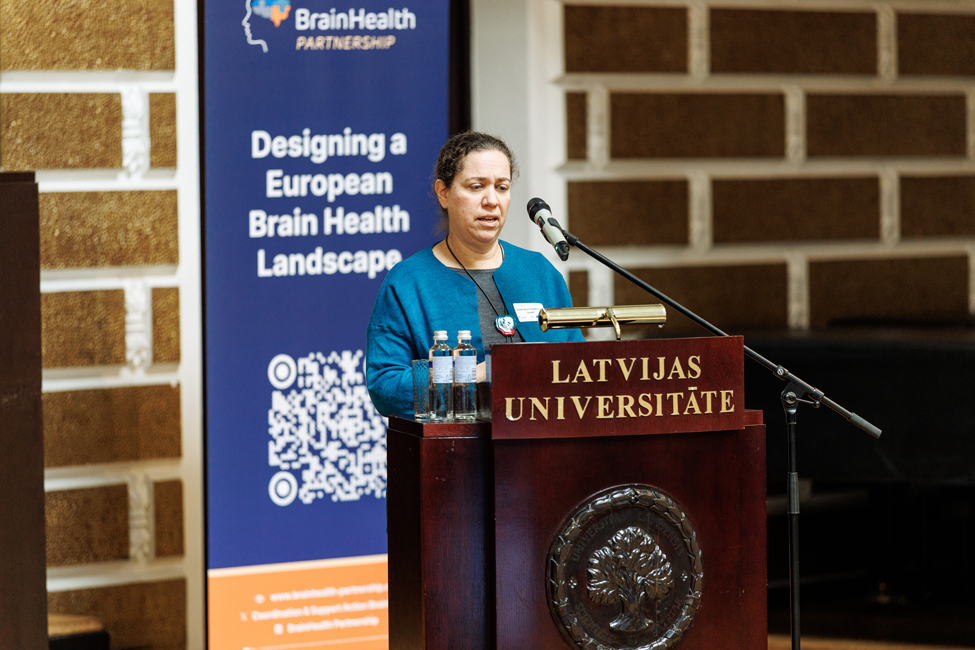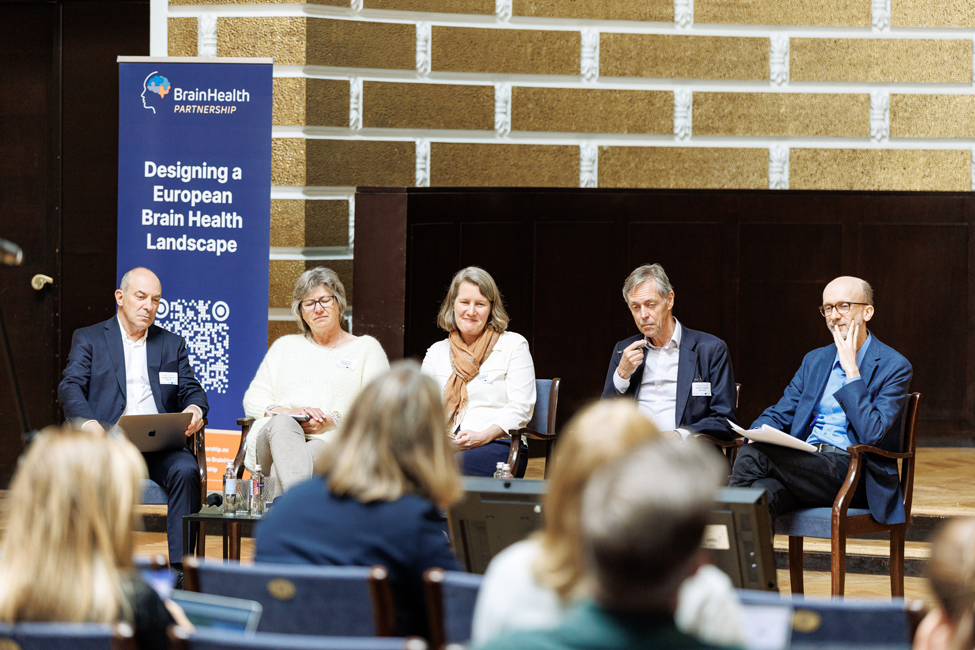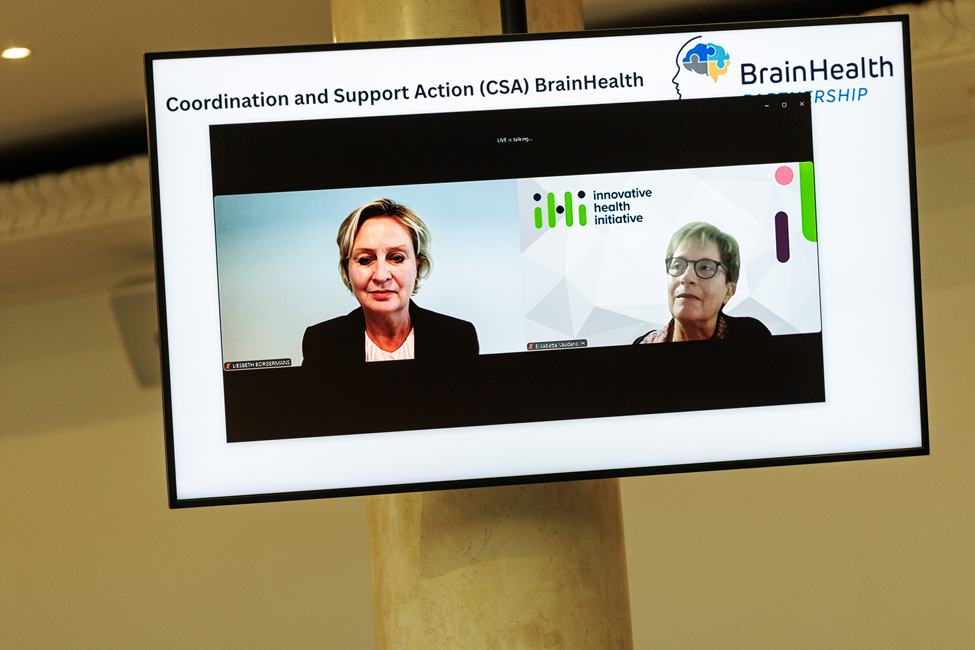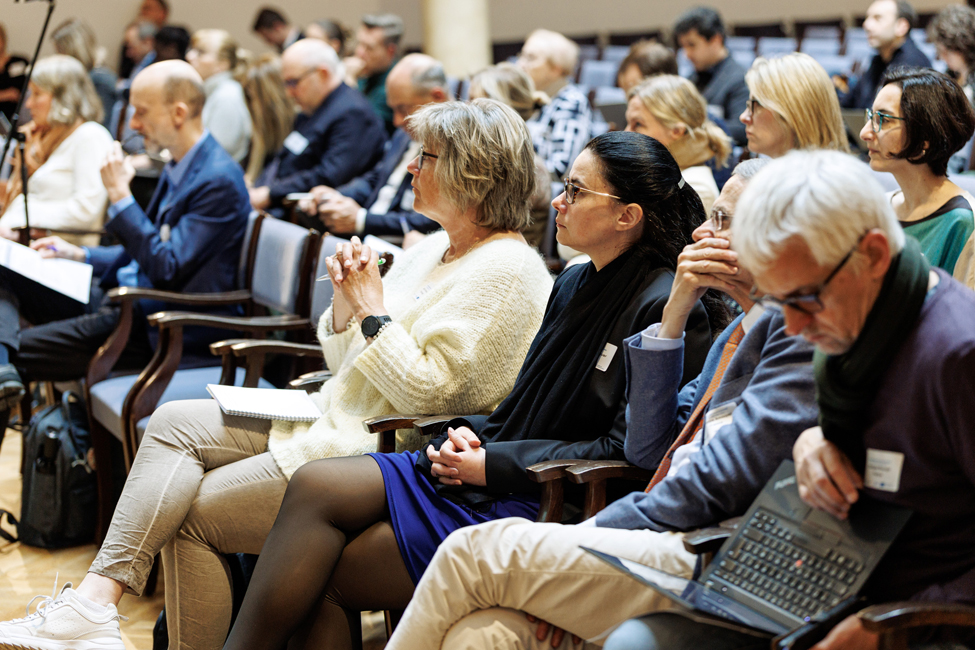The second General Assembly of the Coordination & Support Action BrainHealth (CSA BrainHealth) successfully took place on 13 May 2025, hosted by the University of Latvia and the Latvian Council of Science (LZP) in Riga. Gathering project partners, national funders, policymakers, patients, researchers and civil society representatives, this meeting reviewed the progress made toward the upcoming European Partnership for Brain Health (EP BrainHealth) – envisaged start in 2026, and presented its structure and key priorities.
Welcome & Opening Remarks
The General Assembly opened with a warm welcome from Maija Bundule (Latvian Council of Science) and an introduction by Ulrike Bußhoff (CSA BrainHealth Coordinator, DLR), who emphasized the importance of this preparatory phase in shaping a strong, coordinated European approach to brain health. Tim Raemaekers (European Commission, DG Research & Innovation) delivered opening remarks on behalf of the European Commission, to highlight its commitment to supporting brain research and innovation across member states and beyond.
Setting the Scene: The Vision for the EP BrainHealth
Friederike Bathe (DLR) then presented an overview of the envisioned EP BrainHealth, highlighting its mission to foster a sustainable, inclusive and impactful research ecosystem, comprehensively addressing neurological and mental health challenges at both the European and global levels.
Work Package Presentations: Progress and Next Steps
The General Assembly then gave room to key members of the upcoming EP BrainHealth to detail its structure and explaining foreseen tasks. Katja Hüttner (DLR) started by outlining the project’s coordination mechanisms, governance structures and internal communication tools, meant to ensure smooth collaboration across partners. Catherine Marquer (ANR) shared updates on future research priorities, defined in the Strategic Research and Innovation Agenda, and funding strategies for the EP BrainHealth, while Christina Müller (DLR) gave a preview of the first planned calls of the Partnership, focusing on innovation and high-impact areas.
Silvia Lorrio (AEI) presented the framework for monitoring national and transnational funding alignment to enhance coordination and reduce fragmentation of efforts, while Jolien Roovers (VLO-EWI) discussed efforts to bridge the gap between scientific breakthroughs and practical applications. Melanie Neijts (NWO) then highlighted tangible strategies to involve citizens, patients and key stakeholders in shaping research agendas and policies.
Frédéric Destrebecq (EBC) emphasized the importance of building synergies with international brain research initiatives to position the EP BrainHealth centrally on the global stage. Catherine Marquer (ANR) detailed the methods used to align national and European priorities and establish clear, actionable goals for the Partnership, before Christina Müller (DLR) introduced resource planning efforts to ensure sustainability and long-term impact of the EP BrainHealth. Finally, Liron Even-Faitelson (CSO-MoH) presented the dissemination strategy to raise awareness among stakeholders, policymakers and the general public.
Panel Discussion: What to Expect from the Future EP BrainHealth?
A high-level panel, moderated by Ulrike Bußhoff, then explored the broader ambitions of the EP BrainHealth with contributions from Tim Raemaekers (European Commission), Astri Arnesen (European Federation of Neurological Associations), Liesbeth Borgermans (World Health Organization), Philippe Vernier (EBRAINS), Elisabetta Vaudano (Innovative Health Initiative) and Thomas Gasser (Chair of the Scientific Advisory Board). The panel addressed how the EP BrainHealth can drive tangible policy impact, foster patient engagement, ensure proper data sharing and build Europe’s leadership in brain research and care.
Open Discussion and Closing
The General Assembly concluded with an open forum for participants to reflect on lessons learned, discuss remaining challenges and suggest ideas for the final phase of the CSA BrainHealth. Ulrike Bußhoff provided closing remarks, underlining the collective effort needed to realize the full potential of the Partnership.
Key Takeaways:
- The EP BrainHealth is on track for its 2026 launch, with strong alignment among Member States.
- Stakeholder engagement – especially patients, clinicians, and private sector – remains a top priority.
- International collaboration and global outreach will be essential to ensure the Partnership’s relevance and success.
- Translation of research into tangible improvements in prevention, diagnosis, treatment and care is central to the Partnership’s impact.
- Clear communication and dissemination strategies are in place to build awareness and support across Europe.
